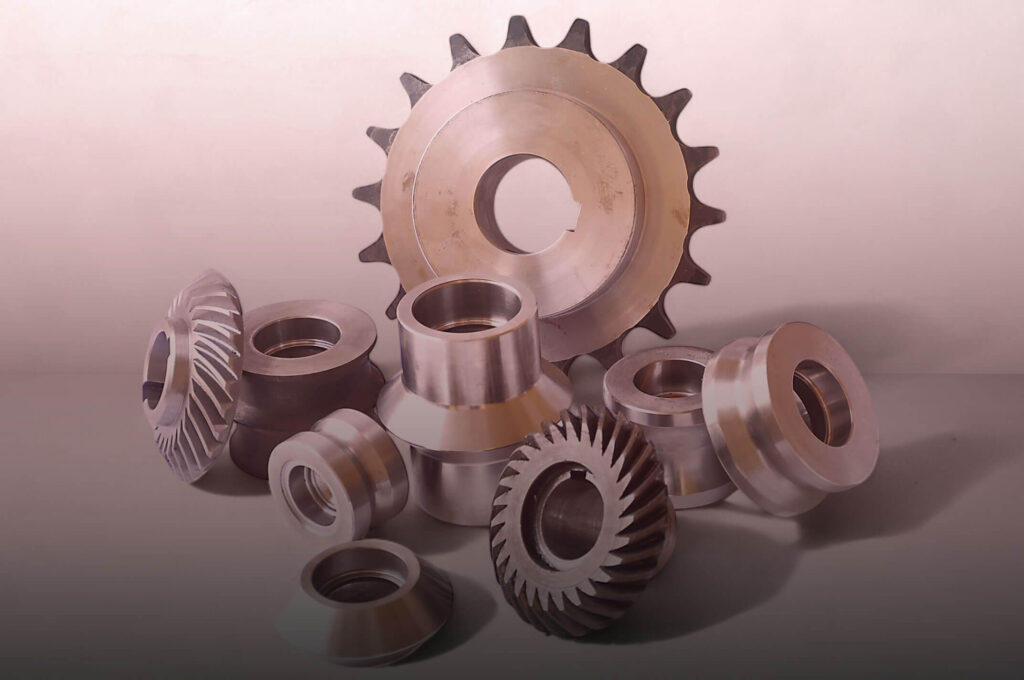Tool Steel
Tool Steel are high-performance, wear-resistant ferrous alloys primarily composed of iron and carbon, with a substantial inclusion of alloying elements such as chromium, molybdenum, tungsten, and vanadium. These alloying elements are critical for enhancing specific properties like hardenability, toughness, and wear resistance, making steel tools the preferred material for tools and machinery exposed to extreme conditions.
Grades of Tool Steel
Tool Steel come in various grades, each tailored to specific applications based on their intended use. The selection of the appropriate grade depends on factors like sharp cutting edges, impact resistance, heat resistance, or wear resistance is crucial, as well as the specific machining and hardening processes being utilized.
- Properties: Thanks to their high chromium content, air-hardened steels are known for their low distortion during heat treatment. They require no quenching medium (such as oil or water) for hardening, which minimizes warping or dimensional changes.
- Applications: They provide an ideal balance of wear resistance and toughness, making them suitable for precision tools that require minimal deformation during hardening, such as punches, dies, and cutting tools.
- Machinability: Excellent machinability and suitability for applications requiring moderate to high wear resistance.
- Properties: Cold work tool steels are formulated to withstand high mechanical stresses and are resistant to wear and fracture during the hardening process. They are designed for minimal distortion during heat treatment and are typically used for tools exposed to moderate to severe wear.
- Applications: These steels are essential in die and mold applications, including stamping, forging, and other forming processes where dimensional stability is crucial.
- Enhanced Hardening: These steels contain more alloying elements to improve hardenability compared to water-hardened grades, enabling higher strength and durability in demanding environments.
- Properties: H-grade tool steels are specifically designed to perform under high-heat conditions. They retain their strength and hardness even after prolonged exposure to elevated temperatures, making them ideal for tools used in hot forging, extrusion, and casting processes.
- Applications: Commonly used in hot working processes where tools are exposed to temperatures well above 500°C, such as die casting, extrusion dies, and forging hammers.
- Heat Resistance: These steels maintain their performance under thermal cycling, preventing deformation and cracking due to temperature fluctuations.
- Properties: Oil-hardened tool steels undergo quenching in oil, which provides a good balance between hardness and toughness. They typically offer moderate wear resistance, coupled with good machinability, which makes them easier to work with in manufacturing processes.
- Applications: Used for cutting tools, broaches, and tooling where moderate hardness and machinability are required without excessive brittleness.
- Key Characteristics: These steels are well-suited for applications where moderate wear resistance is necessary, but extreme hardness or heat resistance is not a priority.
- Properties: S-grade tool steels are specifically engineered to withstand shock and impact loading at both low and high temperatures. These steels typically have lower carbon content, which enhances their toughness and resistance to breakage.
- Applications: Ideal for tools subjected to high-impact conditions, such as hammers, chisels, crushers, and striking tools.
- Key Characteristics: Carbide-forming alloys contribute to high hardness, while the lower carbon content ensures they resist cracking or shattering under heavy shock.
- Properties: W-grade tool steels are quenched in water to achieve high hardness. They are the most cost-effective option compared to other tool steels, but they tend to be brittle due to the quick cooling rate.
- Applications: Primarily used for general-purpose tools and cutting applications where high hardness is essential, but brittleness is manageable.
- Cost-Effective: While more affordable, these steels are best suited for applications where extreme hardness is necessary, but the tools are not exposed to excessive wear or shock.
- Properties: M/T-grade tool steels are designed for cutting tools that must maintain their hardness and strength at extremely high temperatures, often exceeding 760°C. These steels retain their cutting-edge properties at elevated temperatures, making them ideal for high-speed machining.
- Applications: Commonly used in drills, milling cutters, taps, and other cutting tools that need to maintain high performance even under high-temperature conditions.
- Performance: Known for their excellent wear resistance and retention of hardness at high speeds, these steels are indispensable in high-speed machining applications like aerospace, automotive, and metalworking industries.
Why Choose the Right Tool Steel Grade?
Selecting the correct grade of tool steel for a specific application is critical in ensuring the performance, durability, and cost-effectiveness of the tools. Whether you need extreme hardness, high-temperature resistance, or toughness under impact, each grade is engineered to deliver optimal results for its intended purpose.
By understanding the characteristics of each grade, manufacturers can choose the right tool steel that balances strength, toughness, wear resistance, and cost, ensuring tools perform optimally for the desired application.


